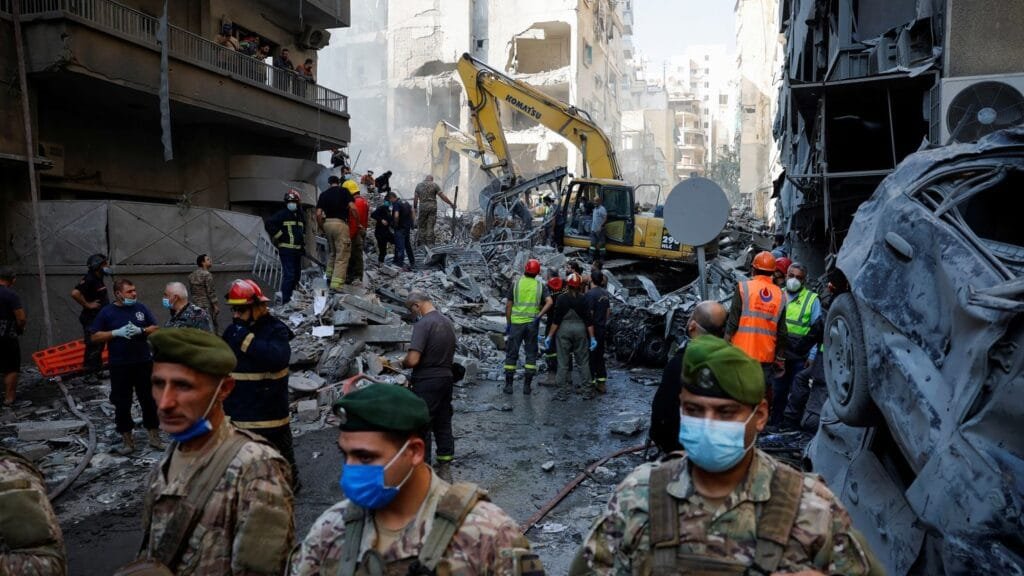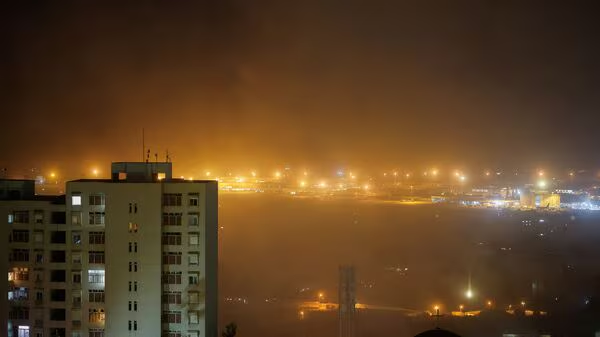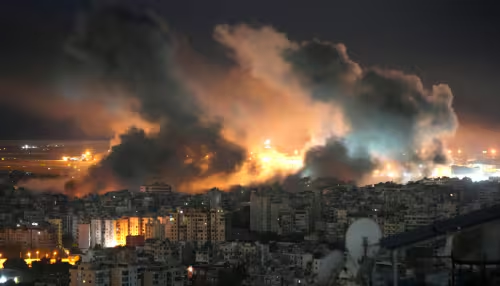The Highlights:
Israeli fighter jets launched a series of airstrikes targeting Hezbollah military command centers in the Dahiyeh district of Beirut in a move that marked a significant ratcheting up in hostilities. Strikes brought down 12 key structures and took 29 lives, one of the most severe attacks in recent history.
Striking at Hezbollah Command Centers
The Israeli Air Force declared that the operation was aimed at destructing the strategic infrastructure Hezbollah had implemented. The assaulted facilities were:

- Intelligence Unit Headquarters: was in charge of spying and documenting Israeli activities.
- Coast-to-Sea Missile Unit: responsible for Hezbollah’s naval offensive capabilities
- Unit 4400: It was believed to smuggle Iran’s weapons from Syria into Lebanon.
The IAF emphasized that these command centers were instrumental in planning and executing attacks against Israel and monitoring Israeli Defense Forces (IDF) operations in southern Lebanon.
Casualties and Humanitarian Impact
According to the Lebanese Ministry of Health, 29 people have been killed and hundreds injured in airstrikes, with ongoing rescue efforts underway to locate survivors among the rubble. The densely populated nature of the Dahiyeh district has exacerbated the humanitarian crisis, displacing many civilians and destroying critical infrastructure.

Hezbollah Response and Regional Fallout
In response, Hezbollah fired about 250 rockets and mortar bombs into Israeli territory-one of the most intense barrages in some time. The barrages caused injuries and property damage in cities such as Petah Tikva and Nahariya. The military said many of the rockets were shot down, but the escalation has intensified concern of a larger conflict.
International Responses and Appeals for Calm
International reaction The international community expressed deep concern over the rising violence in the region. Lebanon’s caretaker Prime Minister, Najib Mikati, denounced Israel’s airstrikes, calling them “a direct challenge to the efforts of the ceasefire and a breach of Lebanese sovereignty,” and urged international action to prevent more aggression.
Meanwhile, diplomatic efforts to calm the situation are being put in place. The United Nations are calling on all sides of the conflict to immediately stop hostilities and to try to save civilian lives while upholding international law.
Historical Context and Ongoing Conflict
The current hostilities are part of a larger pattern of hostilities between Israel and Hezbollah, a Shiite militant group based in Lebanon. For years, tensions have been simmering on and off, periodically flaring into massive wars, large-scale killings, and displacement. The current situation underlines how peace remains fragile and complicated to achieve lasting stability.
Humanitarian Concerns and Aid Efforts
The airstrikes have devastated the land and increased the humanitarian crisis in Lebanon. Global organizations are raising funds for emergency support to victims. However, most of these regions remain inaccessible due to continued military activities.
Conclusion
The further the situation escalates, the more immediate it becomes to involve diplomats and liaise with all parties involved. The level of escalation in this case is a grim reminder about how unstable the Middle East is and how devastating war is for non-combatants. Mediation and support from the international community to peace processes may save more lives and stabilise the area.
For Latest News Updates Click Here
